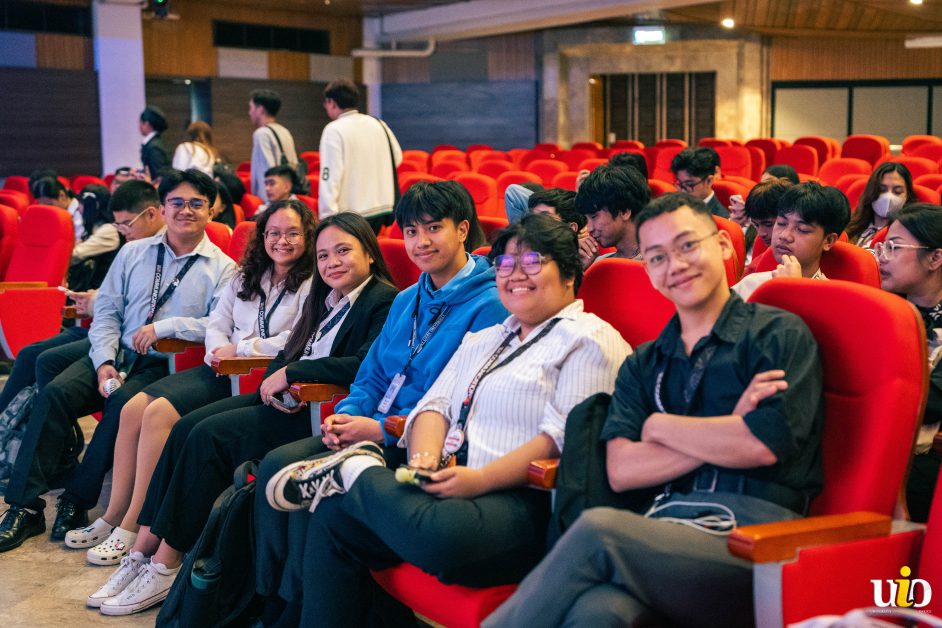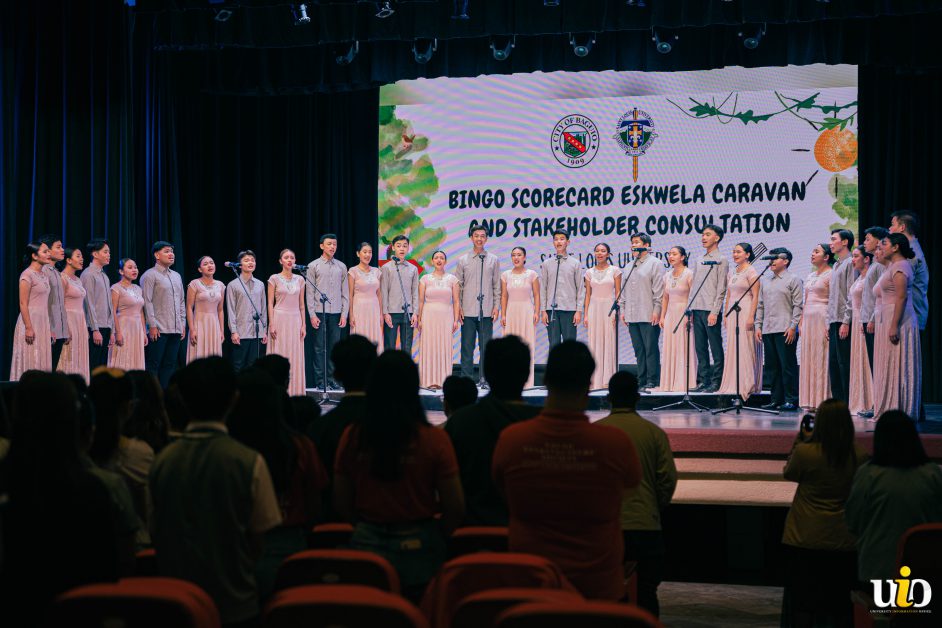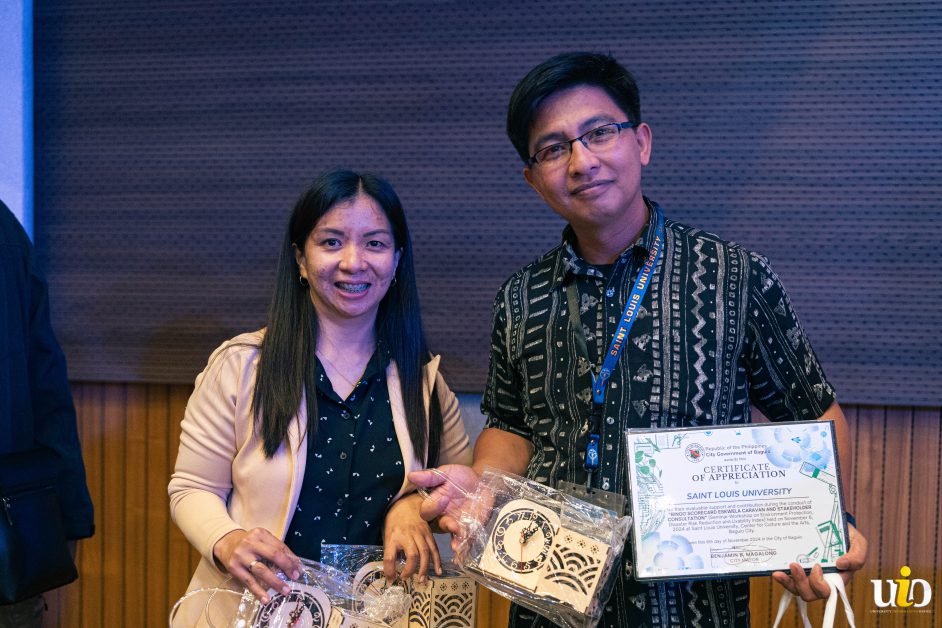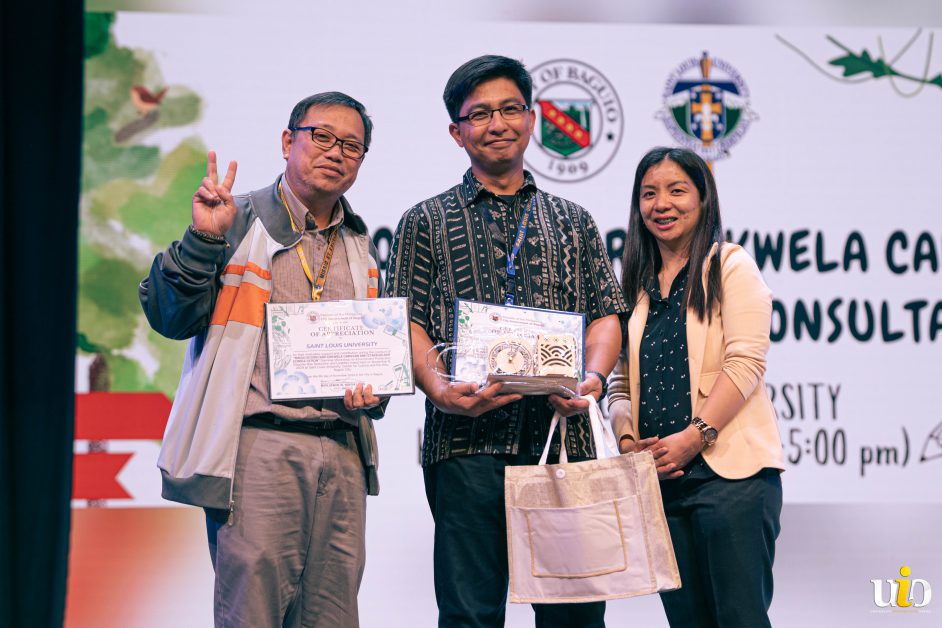Saint Louis University (SLU) hosted the City Government of Baguio’s “Bingo Scorecard Eskwela Caravan and Stakeholder Consultation” at the Fr. Joseph Van den Daelen, CICM- Center for Culture and the Arts (CCA) Theater on 06 November 2024.
Through the SLU University Research and Innovation Center (UNRIC) and Office of Student Affairs and Services (OSAS), various high school and college organizations across Baguio participated in the multi-sectoral city-led project. Among five caravans, the University was the second to be selected as part of the initiative.
Spearheaded by various city government offices in partnership with the non-governmental organization (NGO) Zero Waste Baguio, the Bingo Scorecard Eskwela Caravan encourages barangays and educational institutions to help build a sustainable and resilient Baguio. This project emphasizes vital areas such as environmental protection, livability, and disaster risk reduction, which are central to the city’s plan to counter urban decay. The City Environment and Parks Management Office (CEPMO) spearheads the initiative, bringing together community resources and expertise to address pressing environmental issues the city is experiencing and commits to essential goals for Baguio’s sustainable development.
SLU’s Executive Assistant to the President, Joselito Gutierrez, PhD, delivered the welcome message on behalf of SLU President Rev. Fr. Gilbert B. Sales, CICM, PhD. He emphasized each participant’s critical role in shaping a sustainable future, stating, “Your participation as members of various student organizations is vital. Together, we can create impactful initiatives that promote environmental conservation, improve public health through anti-smoking measures, and bolster our community’s resilience against disaster.” He also encouraged students to take on leadership roles within their organizations and to engage their peers in meaningful discussions on effectively addressing these environmental issues.
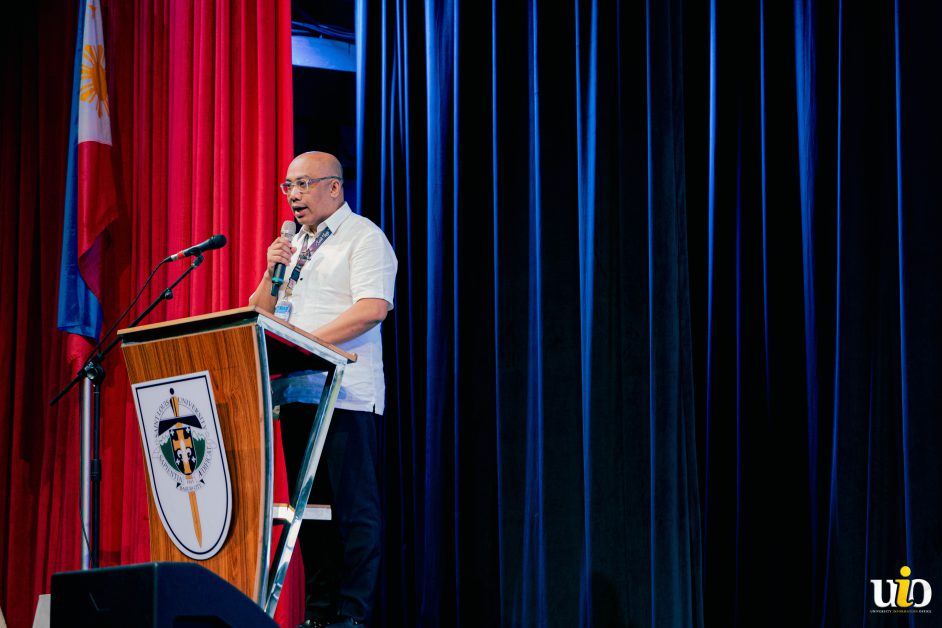
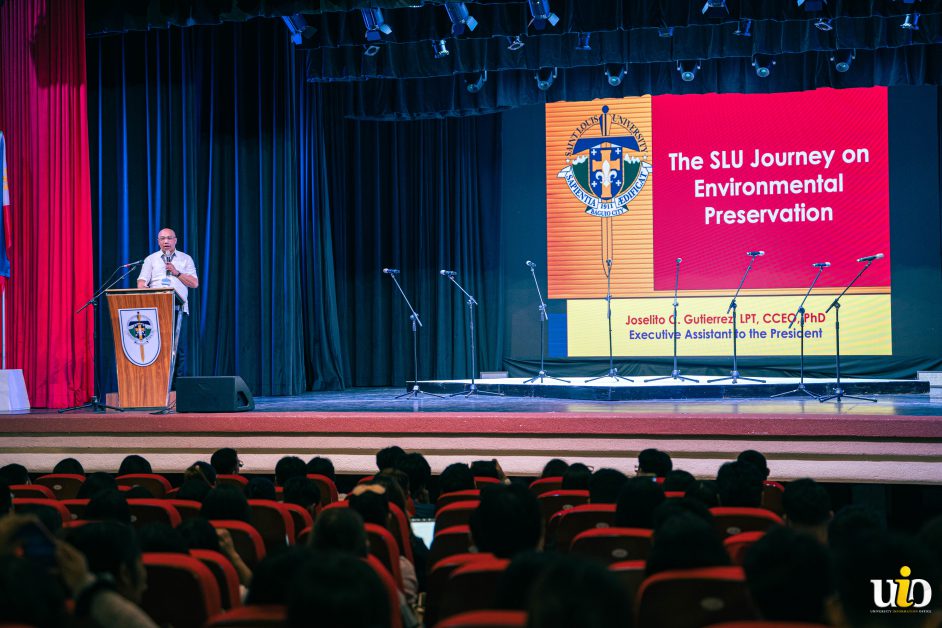
Meanwhile, Baguio City Mayor Benjamin Magalong emphasized the city’s need for resilience in times of calamity. He noted that Baguio City has entered the first year of its resiliency program, aiming to accelerate progress by 2030. However, Mayor Magalong shared his ambitious goal to achieve these targets by 2026 to better prepare and mitigate the impact of anticipated disasters. He urged the students to be aggressive and deliberate with their decisions, reminding them of their vital role in building a resilient community.
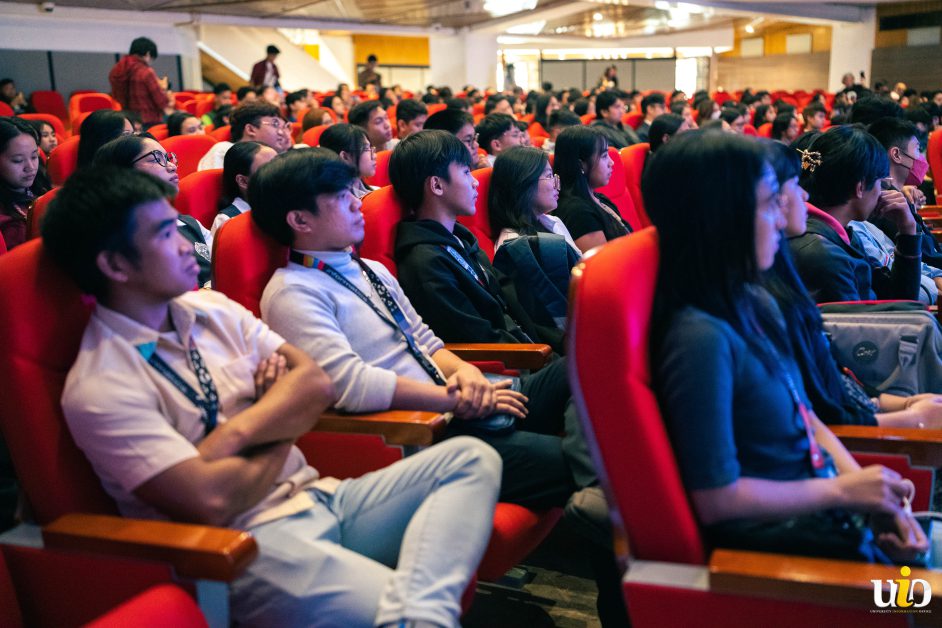
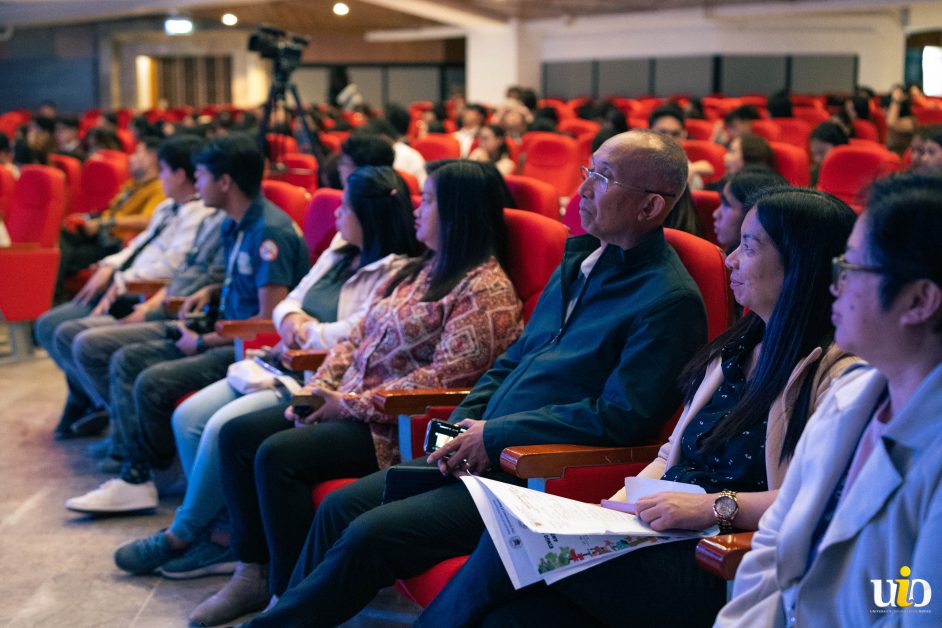
The CEPMO then highlighted the issues of water supply shortages and challenges in solid and liquid waste treatment, noting that 90% of households in Baguio lack direct connections to city sewage lines, which impacts the city’s access to a clean water supply. The City Planning and Development Office discussed the ten dimensions of barangay livability and shared the city’s vision for “Baguio 2043: A Livable, Inclusive, and Creative City.” Meanwhile, the Health Services Office (HSO) addressed the importance of creating a smoke and vape free community.
Further, Zero Waste Baguio led a Resource Management session focusing on reducing waste within communities; while the City Disaster Risk Reduction and Management Office underscored on the importance of disaster preparedness, encouraging students to break the vicious cycle of disaster, respond, recover, and repeat.
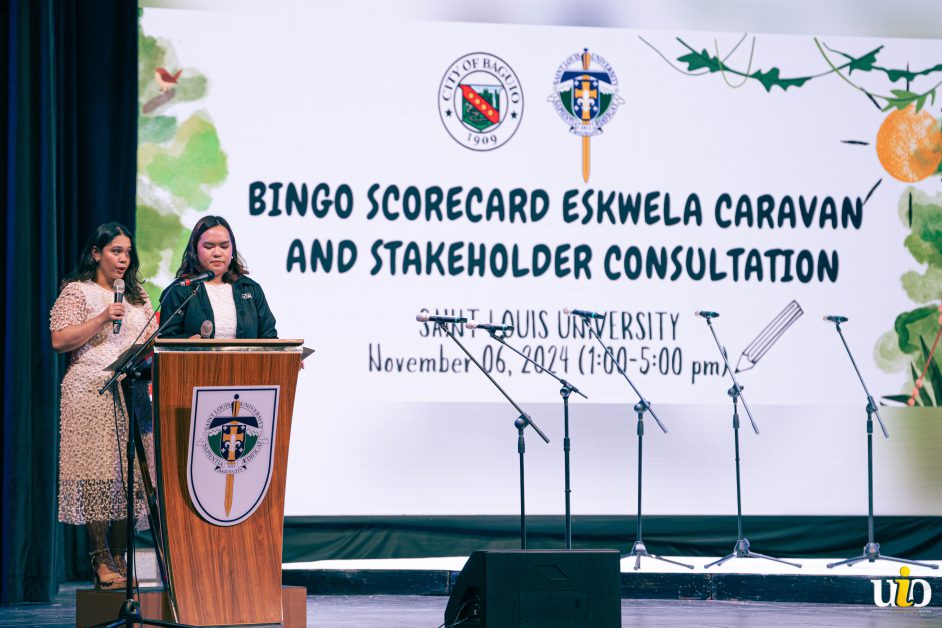
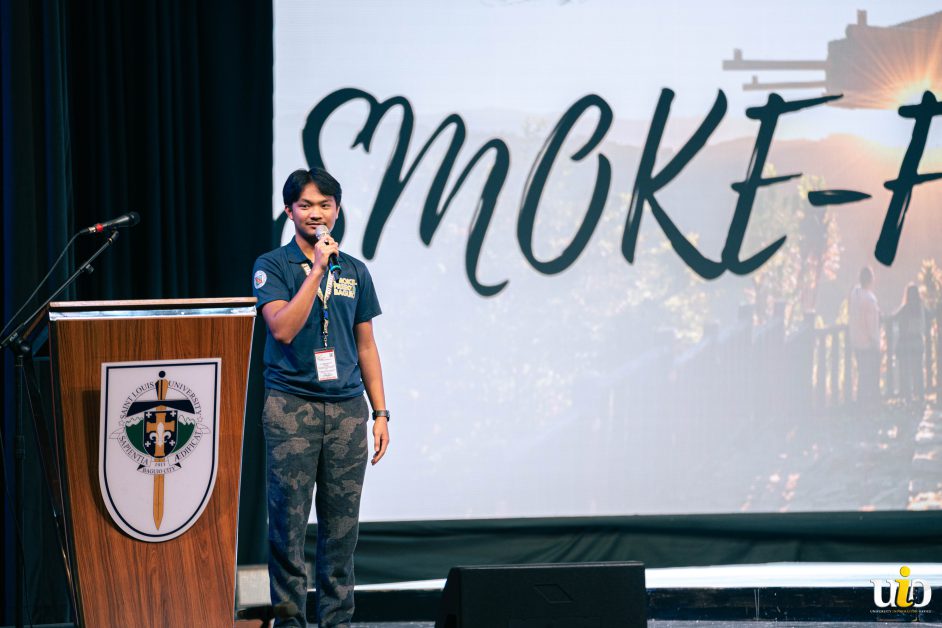
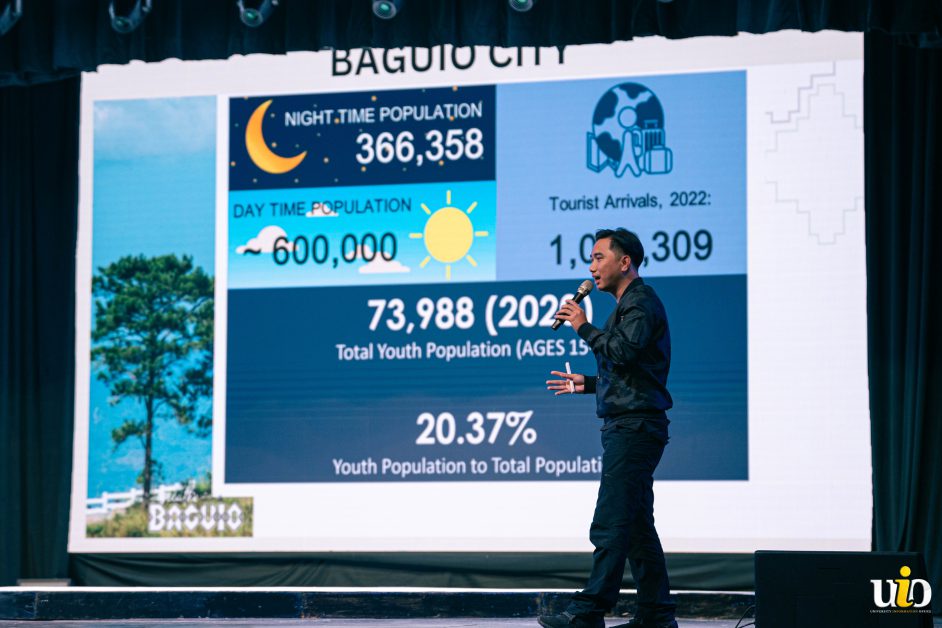
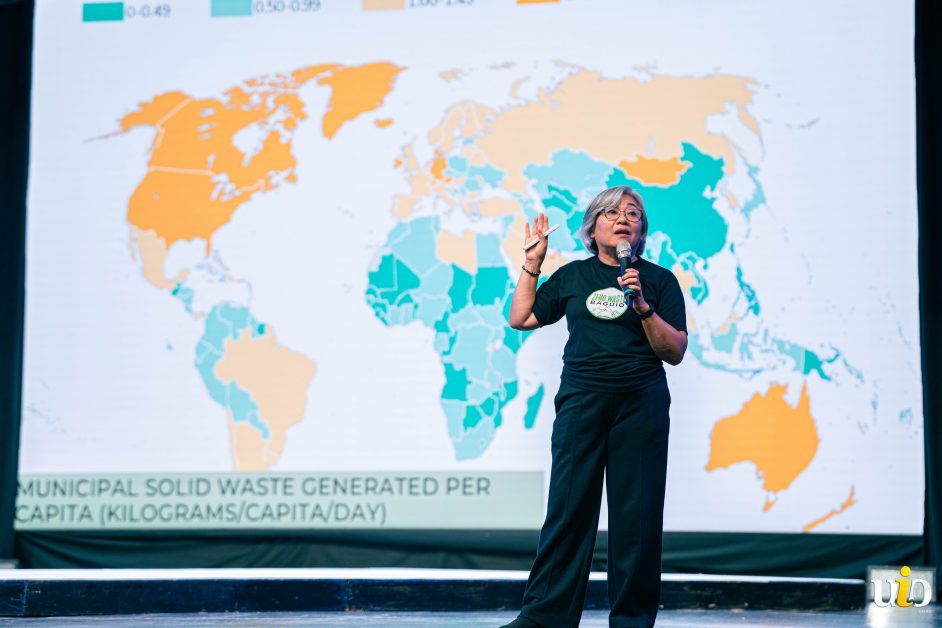
The event also gave SLU an opportunity to share its best practices that are aligned with the 17 United Nations Sustainable Development Goals (UN SDGs) and the 7 Goals of Laudato Si. Dr. Gutierrez presented various sustainable projects that are making a significant impact on the environment, such as the Water is Life, Sewage Treatment Plant, Adopt-A-River, Adopt-A-Shoreline, and Adopt-A-Marine Turtle Program.
As a Congregation of the Immaculate Heart of Mary (CICM) institution, SLU strives to instill not only academic excellence but also a “missionary heart” in the Louisian community. Also, as an ecclesial institution, SLU follows Catholic Church mandates to contribute to the total development of the human person, integrating faith and action for the betterment of society and the environment. With these, the University’s advocacies for sustainability have gained recognition among worldwide university-ranking organizations, ranking it as one of the best institutions globally.
In hosting the Bingo Scorecard Eskwela Caravan and Stakeholder Consultation, Saint Louis University has reaffirmed its commitment to the United Nations Sustainable Development Goals (SDGs), particularly Clean Water and Sanitation (SDG 6), Affordable and Clean Energy (SDG 7), Industry, Innovation and Infrastructure (SDG 9), Sustainable Cities and Communities (SDG 11), Responsible Consumption and Production (SDG 12), Climate Action (SDG 13), Life Below Water (SDG 14), Life on Land (SDG 15), and Partnerships for the Goals (SDG 17). (Article by Christler Ebue, UIO Intern | Photos by Andreanna Martin, UIO Intern)
